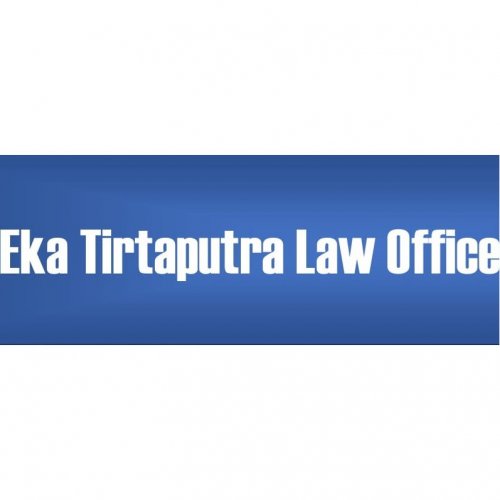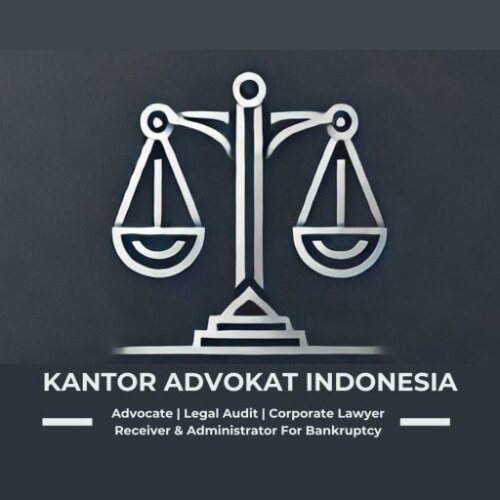Best Renewable & Alternative Energy Lawyers in Indonesia
Share your needs with us, get contacted by law firms.
Free. Takes 2 min.
Or refine your search by selecting a city:
List of the best lawyers in Indonesia
About Renewable & Alternative Energy Law in Indonesia
Indonesia, as a vast archipelago with significant natural resources, is increasingly focusing on renewable and alternative energy to support sustainable economic growth and environmental preservation. The Indonesian government has set ambitious targets to diversify its energy mix and reduce dependency on fossil fuels. This commitment is demonstrated through regulations encouraging the development and use of resources such as solar, wind, hydropower, geothermal, bioenergy, and ocean energy. Legal frameworks are evolving to attract investment, ensure energy security, and comply with international agreements on climate change. As a result, understanding the legal landscape in Indonesia’s renewable and alternative energy sector is vital for anyone looking to participate in or be affected by this growing field.
Why You May Need a Lawyer
Engaging a lawyer in the renewable and alternative energy sector in Indonesia can be essential for several reasons. If you are an investor, developer, landowner, or company interested in launching a renewable energy project, you will likely encounter numerous legal processes and compliance obligations. Common situations where legal expertise is crucial include:
- Securing permits and approvals for energy projects
- Drafting and negotiating Power Purchase Agreements (PPAs)
- Navigating land acquisition and community consent processes
- Ensuring environmental compliance and impact assessments
- Understanding incentives, tariffs, and governmental support programs
- Resolving disputes or litigations in project development or operation
- Adhering to import-export regulations for energy equipment
- Guiding on local content requirements and foreign investment rules
A specialized lawyer can help you avoid costly mistakes, expedite regulatory procedures, and protect your interests throughout your involvement in this sector.
Local Laws Overview
Indonesia’s legal framework for renewable and alternative energy is anchored in several key laws and regulations. The 2007 Energy Law underpins the national energy policy, while the Electricity Law and subsequent presidential and ministerial regulations provide specific provisions for renewable energy. The main legal aspects include:
- National Energy Policy (KEN): Sets targets for renewable energy contributions to Indonesia’s energy mix by 2025 and beyond.
- Feed-in Tariffs and PPAs: Government regulations define price mechanisms and agreement formats for selling renewable energy to state-owned utilities.
- Licensing and Permitting: Projects require multiple permits, including location, environmental, building, and operational licenses.
- Land Use and Community Rights: Complex land laws and local regulations can affect project development, especially for foreign parties.
- Foreign Investment Restrictions: The Negative Investment List determines levels of foreign ownership permitted in energy projects.
- Incentives and Tax Benefits: Several incentives are available, such as tax holidays, reductions, and import duty exemptions for eligible projects.
- Environmental and Social Impact Assessments: Detailed assessments (AMDAL) are mandatory for most projects to ensure environmental protection and minimize social conflicts.
The regulatory environment is constantly evolving. Staying informed about the current legal requirements is vital for compliance and success in this sector.
Frequently Asked Questions
What types of renewable energy are currently prioritized in Indonesia?
Indonesia prioritizes geothermal, hydropower, solar, wind, biomass, and ocean energy due to its rich natural resources. Geothermal energy has received particular attention as Indonesia holds the world’s largest reserves.
Do I need a license to develop a renewable energy project in Indonesia?
Yes, multiple licenses and permits are required, including but not limited to a business license, environmental permit, and operational licenses. The specific requirements depend on the project type and location.
What are Power Purchase Agreements (PPAs), and why are they important?
PPAs are contracts between energy producers and buyers, typically the state-owned company PLN. They define terms for electricity purchase, pricing, duration, and project obligations, serving as the foundation for securing project financing and revenue.
Are there incentives available for renewable energy investors?
Yes, Indonesia offers various incentives such as tax holidays and reductions, import duty exemptions, and government guarantees for certain infrastructure projects to promote investment in renewable energy.
Can foreign companies invest in renewable energy projects?
Foreign investment is allowed but subject to ownership limitations under the Negative Investment List. Partnerships with local companies are common, and foreign investors must comply with local regulations.
How are electricity tariffs for renewable energy determined?
Tariffs are typically regulated by the government through the Ministry of Energy and Mineral Resources, often based on technology type and project location. Tariff structures are periodically reviewed and updated to attract investment.
What are the main environmental compliance requirements for renewable projects?
Most renewable projects must undergo an Environmental Impact Assessment (AMDAL) and secure related permits. Projects must also comply with ongoing monitoring and mitigation obligations to minimize negative impacts.
Do community rights affect renewable energy development?
Yes, respect for land rights, proper community engagement, and fair compensation are crucial. Projects on communal or indigenous lands require careful negotiation and consultation to avoid legal disputes.
What are the risks of non-compliance with Indonesia’s renewable energy laws?
Risks include delays, penalties, project cancellation, and prolonged disputes with authorities or local communities. Legal guidance ensures proper compliance and helps avoid such risks.
How can disputes related to renewable energy projects be resolved?
Disputes may be resolved through negotiation, mediation, arbitration, or litigation, depending on contract terms and the parties involved. Many agreements prefer arbitration or mediation to avoid lengthy court proceedings.
Additional Resources
If you need more information or support regarding renewable and alternative energy in Indonesia, consider reaching out to the following resources:
- Ministry of Energy and Mineral Resources (MEMR): Oversees energy policies, licensing, and regulatory compliance.
- Investment Coordinating Board (BKPM): Facilitates foreign and domestic investment and manages licensing services.
- Indonesian Renewable Energy Society (METI): Connects stakeholders and provides market insights.
- National Energy Council (DEN): Advises on national energy policy and implementation.
- State Electricity Company (PLN): Main buyer of renewable electricity and central to PPAs.
- Environmental Management Agency (BPLHD/Ministry of Environment and Forestry): Responsible for environmental permits and impact assessments.
Next Steps
If you require legal assistance in the field of renewable and alternative energy in Indonesia, here are recommended steps to follow:
- Define your business goals or legal needs related to renewable energy.
- Identify relevant permits, licenses, and compliance requirements for your project or investment.
- Seek consultation with a qualified Indonesian legal practitioner or law firm specializing in renewable energy.
- Gather all necessary documents, including business plans, land agreements, environmental studies, and draft contracts.
- Work collaboratively with your lawyer to navigate regulatory authorities and ensure full compliance.
- Stay informed about policy updates and evolving regulations in this sector by monitoring industry news and government releases.
Professional legal advice can be instrumental in avoiding pitfalls, expediting processes, and achieving successful outcomes in Indonesia’s dynamic renewable and alternative energy landscape.
Lawzana helps you find the best lawyers and law firms in Indonesia through a curated and pre-screened list of qualified legal professionals. Our platform offers rankings and detailed profiles of attorneys and law firms, allowing you to compare based on practice areas, including Renewable & Alternative Energy, experience, and client feedback.
Each profile includes a description of the firm's areas of practice, client reviews, team members and partners, year of establishment, spoken languages, office locations, contact information, social media presence, and any published articles or resources. Most firms on our platform speak English and are experienced in both local and international legal matters.
Get a quote from top-rated law firms in Indonesia — quickly, securely, and without unnecessary hassle.
Disclaimer:
The information provided on this page is for general informational purposes only and does not constitute legal advice. While we strive to ensure the accuracy and relevance of the content, legal information may change over time, and interpretations of the law can vary. You should always consult with a qualified legal professional for advice specific to your situation.
We disclaim all liability for actions taken or not taken based on the content of this page. If you believe any information is incorrect or outdated, please contact us, and we will review and update it where appropriate.
Browse renewable & alternative energy law firms by city in Indonesia
Refine your search by selecting a city.
















